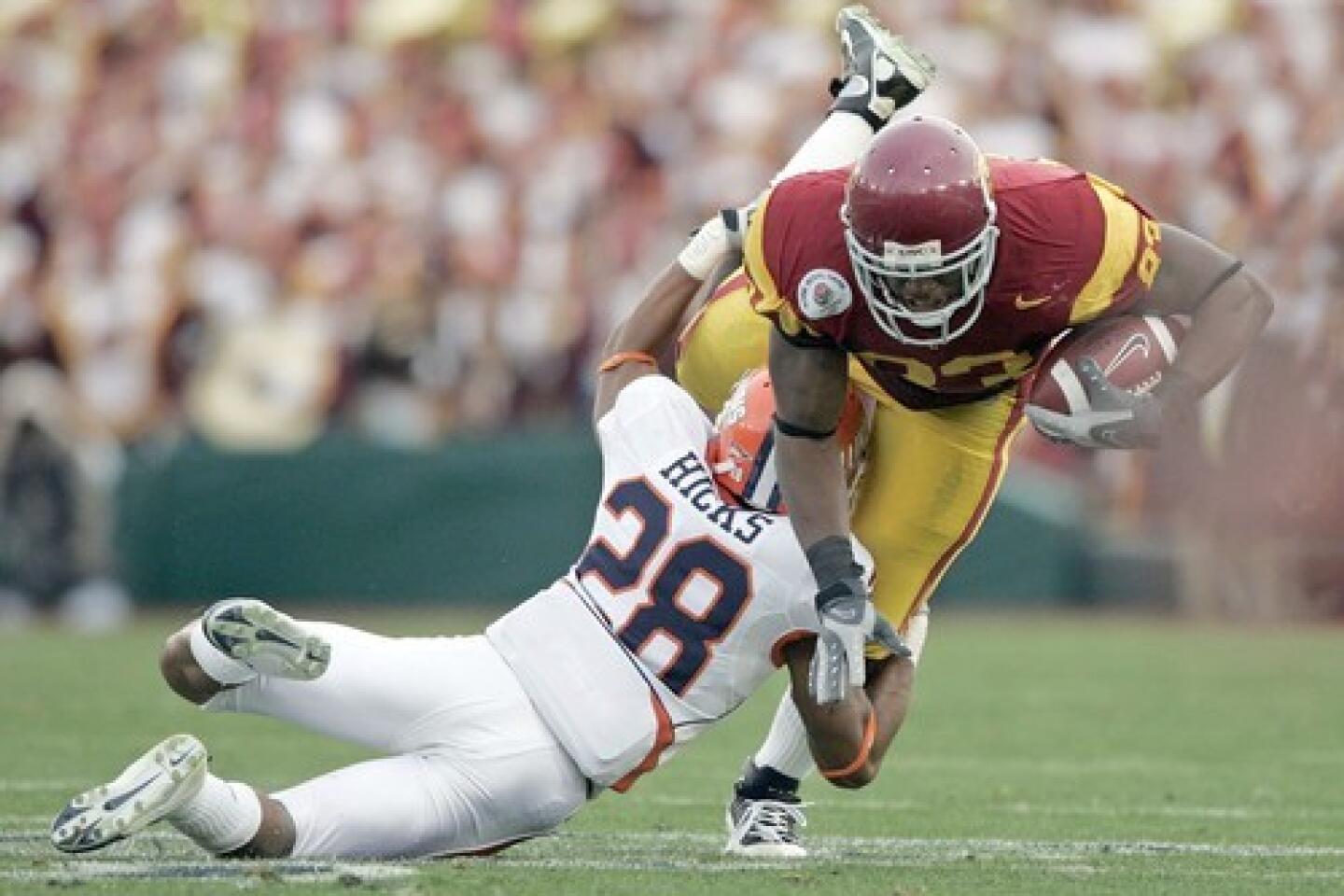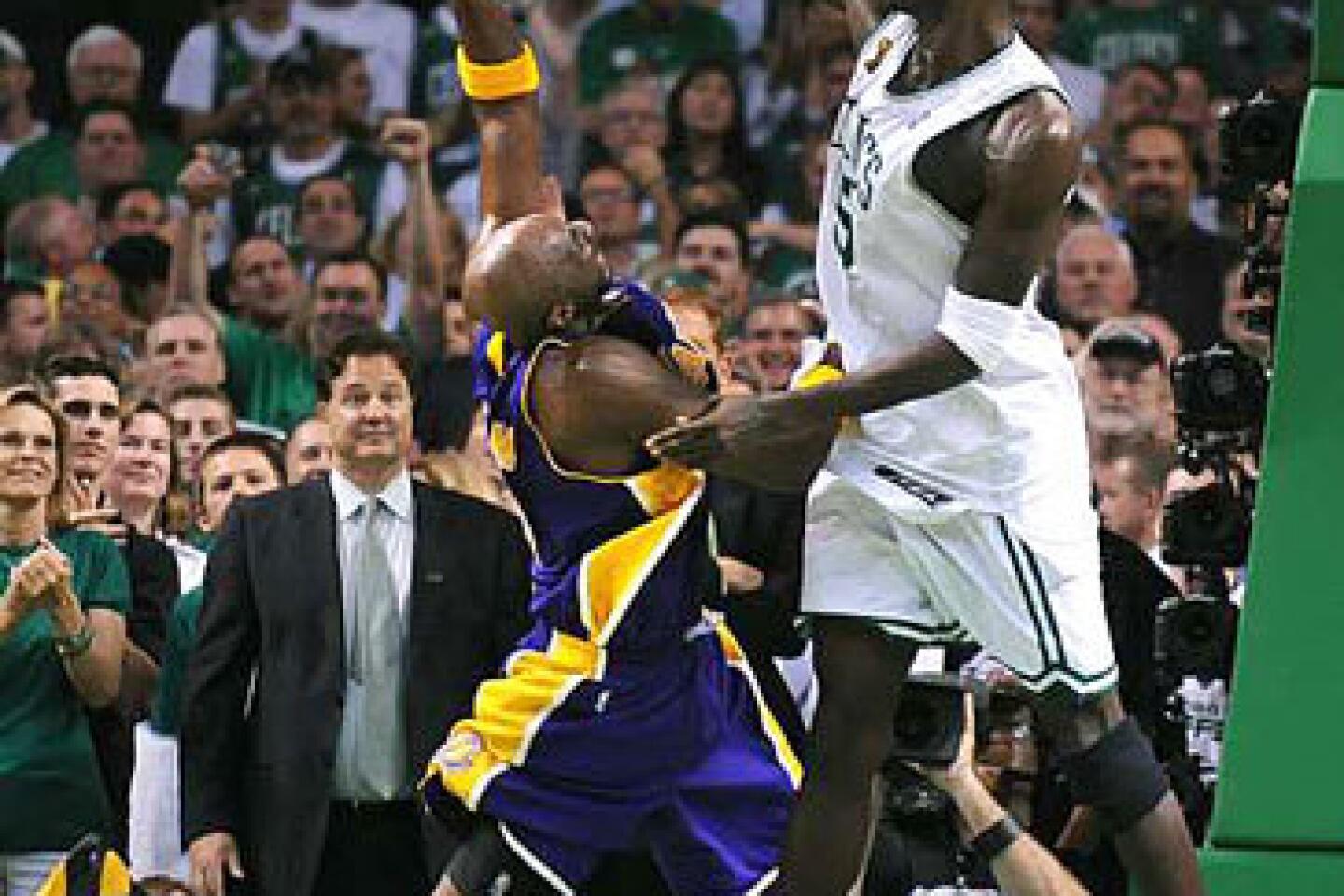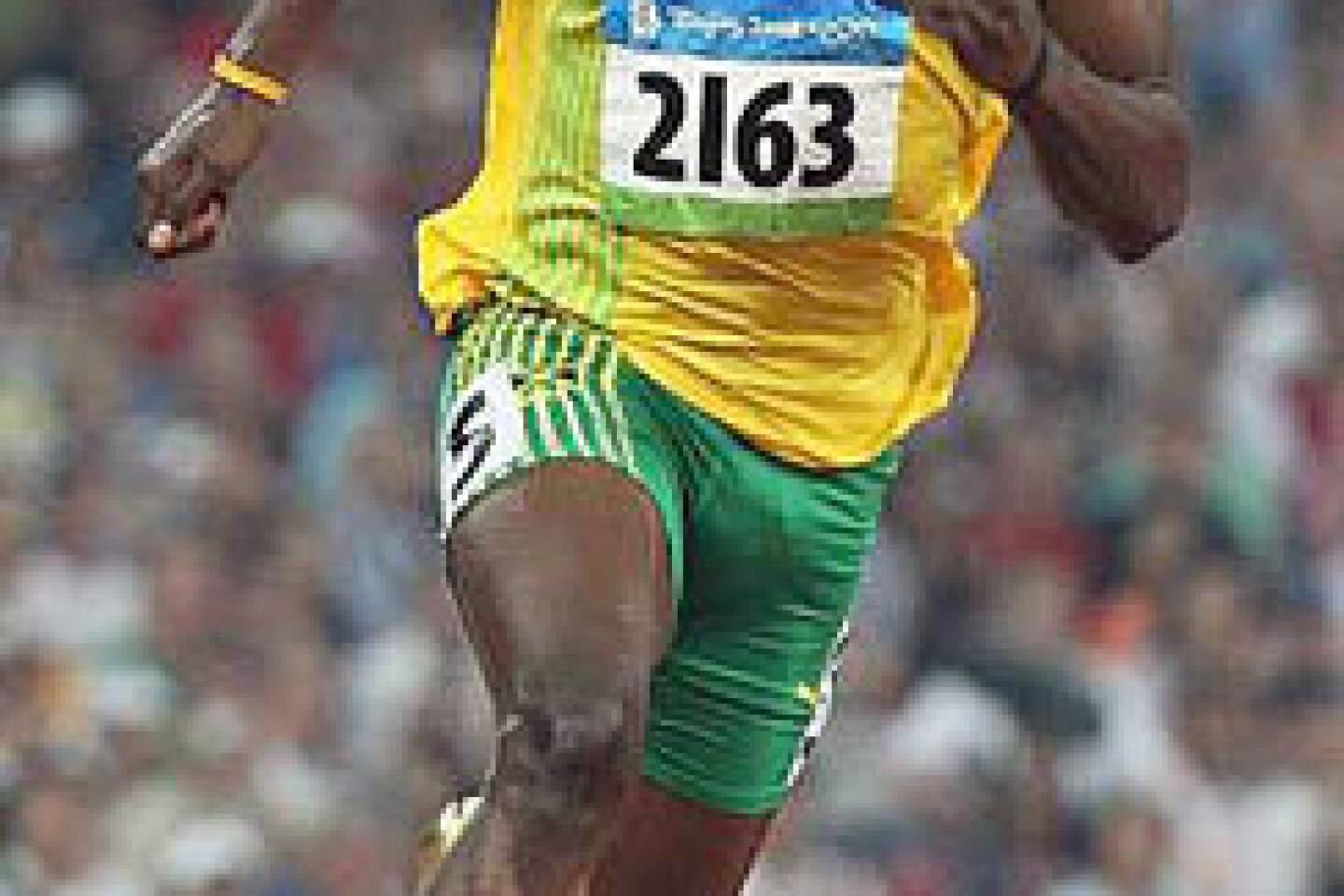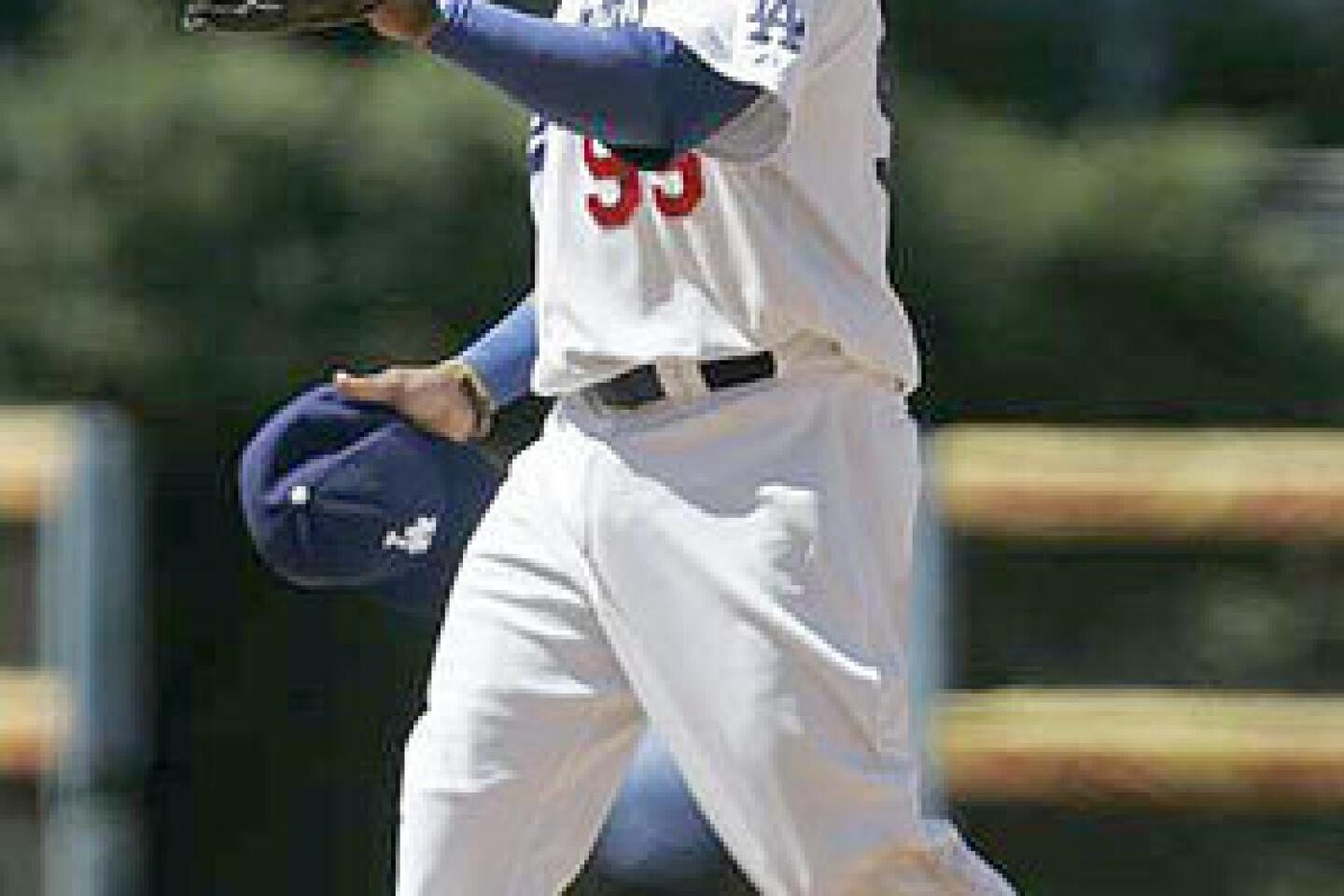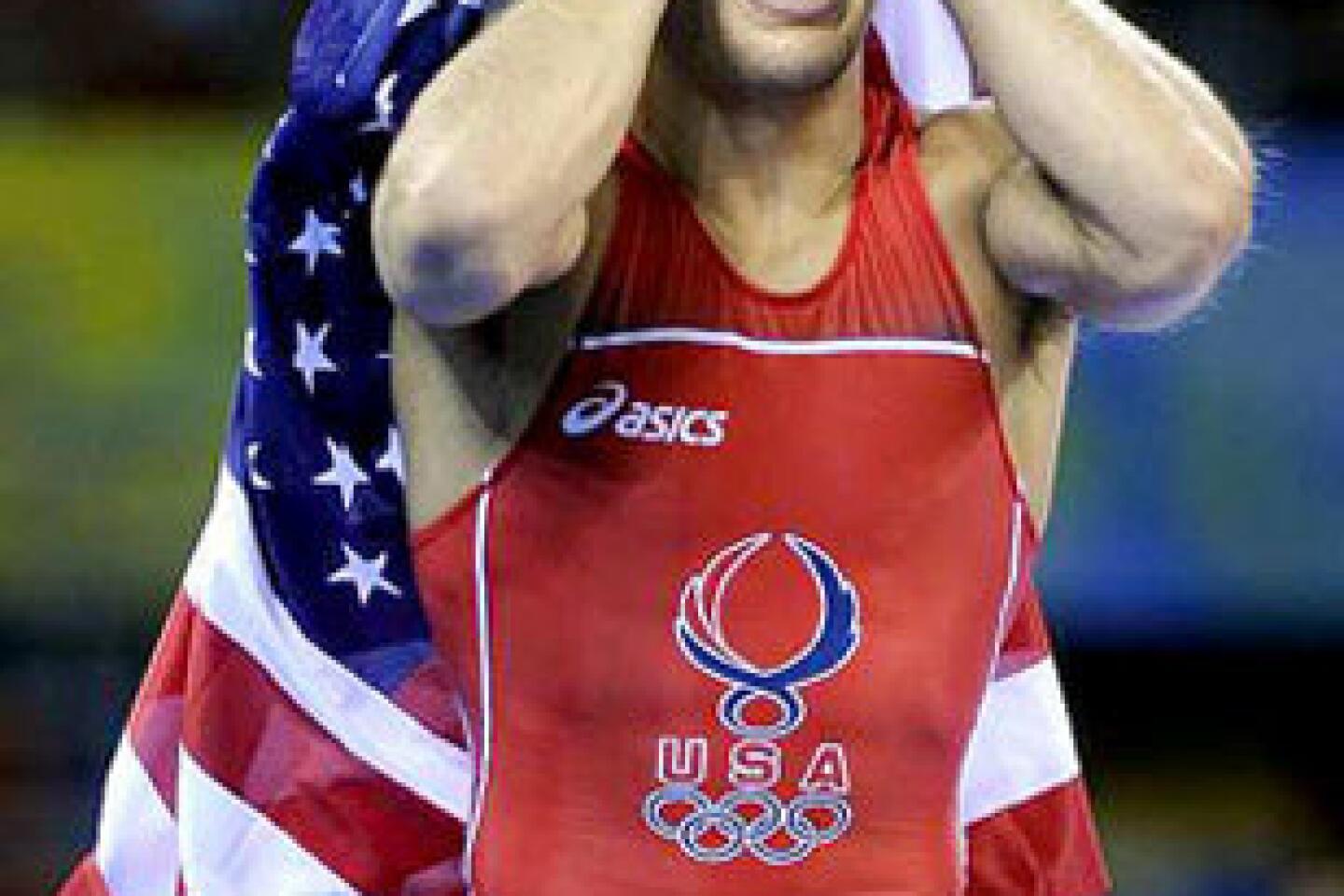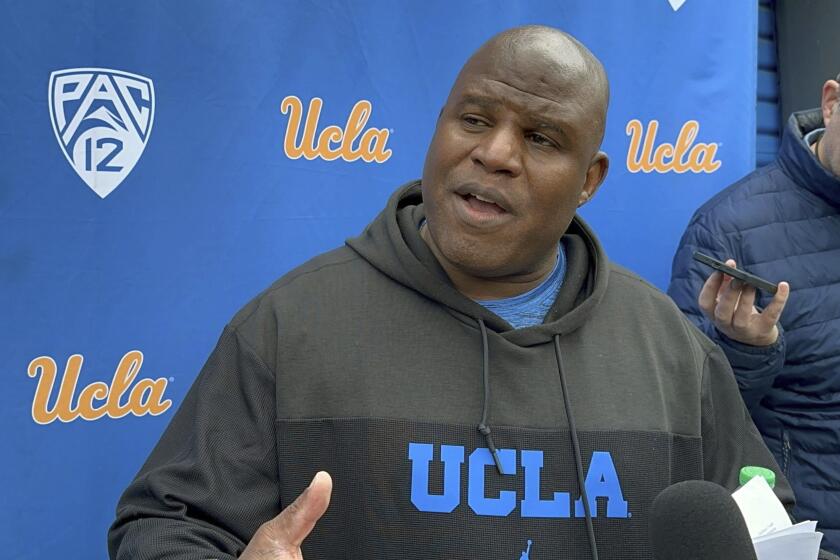Sports offered plenty of distractions in a difficult 2008
It was a sports year that often seemed blissfully out of touch with the times, with Beijing staging an opulent Olympics amid the backdrop of an earthquake that killed tens of thousands and the New York Yankees’ spending hundreds of millions on free agents while an American economy shivered in the winter cold.
It was a year in which sports took its ability to distract quite seriously, delivering epic and historic achievement on a regular basis.
In the NFL, New England opened 2008 having just completed a 16-0 regular season, extended it to 18-0 heading into the Super Bowl against a seemingly overmatched New York Giants team. Then in Glendale, Ariz., Eli Manning outplayed Tom Brady and Tom Coughlin outcoached Bill Belichick and the Giants scored an upset comparable to that of another New York team, the Jets, almost 40 years earlier.
In the NBA, for the first time in 21 years, the Lakers and the Boston Celtics met in the Finals, which was welcomed by the league as a rescue mission after the San Antonio-Cleveland Finals of ’07. It was heralded as a dream matchup across the land, even in Los Angeles, until the Lakers were eliminated in a nightmarish Game 6.
Baseball gave us a World Series between the Philadelphia Phillies (one Series championship in their first 125 years) and the worst-to-first Tampa Bay Rays, then gave us a Game 5 clincher that was interrupted by a 46-hour rain relay.
Hockey, after years of off-Broadway matchups in the Stanley Cup finals, finally got a pairing worthy of the marquee: Detroit against Pittsburgh, with the Red Wings’ veterans prevailing over the Penguins’ precocious young stars in six games.
Tiger Woods and Rocco Mediate played 91 holes at the U.S. Open before a winner -- Woods, bad left knee and all -- could be decided.
Rafael Nadal and Roger Federer played a classic Wimbledon final, Nadal finally besting Federer on grass in a 9-7 fifth set. Mario Chalmers hit a three-pointer for the ages to send Kansas into overtime against Memphis, where the Jayhawks won an unforgettable NCAA basketball final. Jimmie Johnson won his third consecutive NASCAR Sprint Cup championship.
With so much emphasis on big numbers, one of the smallest imaginable -- one-hundredth of a second -- yielded the most impressive performance of all: the margin of victory for Michael Phelps in the 100-meter butterfly final, enough for what would be an unprecedented eight Olympic gold medals.
By that much, Phelps out-touched Serbia’s Milorad Cavic, climaxing a race-ending sprint that bordered on the unbelievable. The same could be said for Jason Lezak’s incredible anchor leg in the 400-meter freestyle relay, already a legend. Lezak entered the pool with the Americans appearing hopelessly behind, but he somehow chased down France’s Alain Bernard for the victory.
Phelps owned these Olympics -- at least until the track and field portion of the event began. Inside the Bird’s Nest, Jamaican sprinter Usain Bolt reigned supreme, setting a world record in every final he ran. In order: 9.69 seconds in the 100-meter sprint, 19.30 in the 200 to break Michael Johnson’s supposedly untouchable record, then running a leg on a 400-meter relay team that completed the trek in 37.10 seconds.
Bolt. It was the perfect name for the fastest man in the world, and sportswriters had a field day matching it with nicknames: Lightning Bolt. Insane Bolt.
Another nickname popularized in Beijing was Redeem Team, assigned to the U.S. basketball squad, attempting to make amends for the embarrassment four years earlier in Athens. Kobe Bryant didn’t care for it much, but both in China and back home in the States, his 2008 played like one long redemption song.
Bryant led the United States back to the top of the medal stand and, somewhat less probable, drove the Lakers back to the Finals about a year after saying he’d rather play on another planet. As it developed, Bryant turned into the best player on this one, at last doing what his critics said he couldn’t do -- make his teammates better -- and winning the league’s most valuable player award for the first time.
With a sizable assist from the Memphis Grizzlies, who kindly donated Pau Gasol to the Lakers in a Feb. 1 trade/giveaway, Bryant maneuvered the Lakers through the Western Conference playoffs in a swift 15 games. Meanwhile, the Celtics, prohibitive championship favorites after the off-season additions of Kevin Garnett and Ray Allen, scuffled through seven games in the first round of the playoffs against Atlanta, seven more against LeBron James and the Cleveland Cavaliers and six more against Detroit -- looking vulnerable every step of the way.
By the time the Finals were arranged, Los Angeles was frenzied. There was talk, in some corners of the media, of a Lakers sweep. Elsewhere, the general tone of discussion was: How could the Lakers lose?
Here’s how: The Celtics might not have looked pretty surviving-and-advancing in the first three rounds, but one constant was their fierce approach to defense. The Lakers encountered it firsthand in the Finals, failing to score 95 points in four of the six games, including Boston’s 131-92 blowout win in Game 6.
Boston walked away with its 17th NBA title -- and as a belated consolation prize, six weeks later, Los Angeles took Manny Ramirez from Boston. Initially, the Ramirez deal was seen as the Dodgers’ taking a malcontent off the Red Sox’s hands, but that trade proved to be one of the great late-season rentals in baseball history. In two months in Los Angeles, Ramirez batted .396 with 17 home runs and 53 RBIs -- shaking up a going-nowhere Dodgers team and leading it into the playoffs, where L.A. swept the 97-win Chicago Cubs in the first round before falling to the Phillies in a five-game National League Championship Series.
The Angels also took part in the late-season rental business, acquiring first baseman Mark Teixeira from Atlanta on July 29. Teixeira led the Angels in hitting the rest of the way and the Angels finished with the best record in the major leagues, 100-62.
But because Boston finished two games behind the surprising Rays in the American League East, the Angels opened the playoffs against the wild-card -- and longtime October nemeses -- Red Sox.
The Angels entered the series with a nine-game postseason losing streak against Boston, but at least the team was comforted by the knowledge it had home-field advantage. Two games in Anaheim, and the losing streak stood at 11. The Angels finally broke the streak, winning Game 3 in Boston, and were tied, 2-2, in the ninth inning of Game 4 with a runner on third when Manager Mike Scioscia called for a squeeze. Erick Aybar missed the pitch, Reggie Willits was caught off third base, and the Angels squandered an opportunity that positioned the Red Sox to win in the bottom of the ninth.
The Angels’ cross-street neighbors, the Ducks, also fell in the first round of the NHL playoffs, losing in six games to the Dallas Stars. The Ducks’ defense of the Stanley Cup ended quickly, and by year’s end, the architect of that champion, general manager Brian Burke, had left the building, moving on to a similar position with the Toronto Maple Leafs.
Elsewhere locally, 2008 often felt like a replay of 2007. UCLA’s men’s basketball team reached the Final Four for the third consecutive year but lost in the semifinals, to Memphis. The Kings, Clippers and Galaxy again missed the playoffs. Chivas USA again lost in the first round. USC’s football team lost another early-season game to a lesser opponent, Oregon State, and the loss was enough to keep the Trojans out of the BCS championship game.
The BCS was business as usual, meaning the system continued to be assailed all season long. Oklahoma and Texas both ended the season with one loss, Texas defeated Oklahoma on a neutral field, but when it came time to send one team to the Big 12 championship game, the BCS standings broke the tie -- the Sooners moved on, and after defeating Missouri, they and Heisman Trophy-winning quarterback Sam Bradford advanced to the BCS title game against Florida.
Disappointment of the year? It would be tough to argue against Big Brown, the alleged super-horse who blew away the competition in the Kentucky Derby and Preakness and had trainer Rick Dutrow calling victory at Belmont “a foregone conclusion.” Result: Big Brown finished last, pulling up down the stretch, the victory going instead to 38-1 longshot Da’ Tara.
Upset of the year? The U.S. Ryder Cup team, relying on six rookies with Woods on the disabled list, ended a three-match losing streak dating to 2002 with a 16 1/2 -11 1/2 triumph over Europe.
Reason for optimism for the new year? It’s a fresh start. In Detroit, where the Lions are an unprecedented 0-15 heading into the final weekend of the NFL regular season, the fans can hardly wait.
Coming Sunday Sports lost some legendary figures in 2008, including Pete Newell, Gene Upshaw. Section B
More to Read
Go beyond the scoreboard
Get the latest on L.A.'s teams in the daily Sports Report newsletter.
You may occasionally receive promotional content from the Los Angeles Times.
